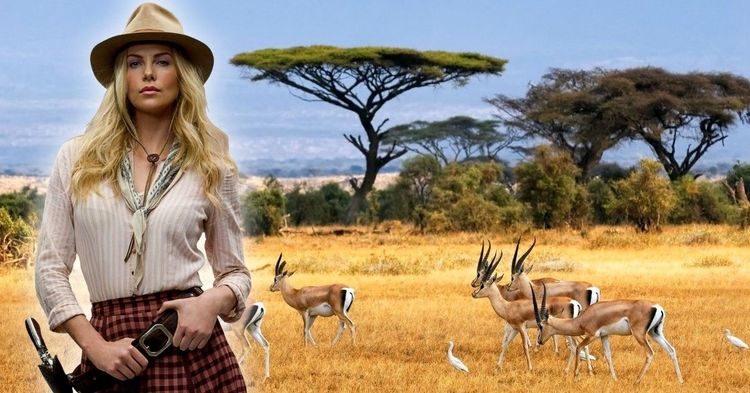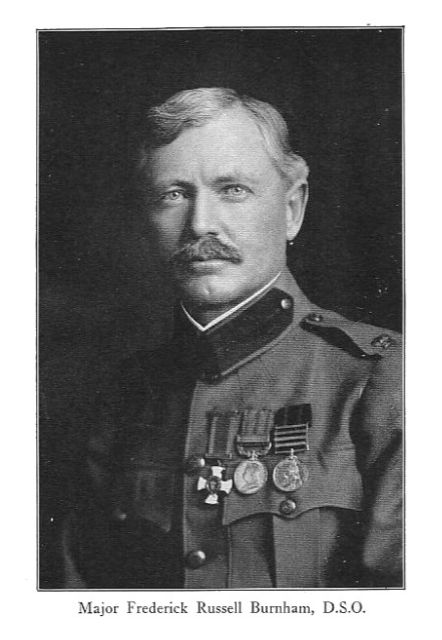


10/18/2019
Re: James Fulford’s blog post Charlize Theron’s Great-Great-Uncle Was A Heroic Boer War Commando
From Reginald De Chantillon

James Fulford wrote about Waterville Mayor Nick Isgro saying Columbus Day was more important than Indigenous Peoples Day. In his post, he referenced how the Wounded Knee "Massacre" was a response to an earlier real massacre of American settlers by the Sioux Indians. Whilst the Left decries Columbus as some sort of alleged genocider, as Fulford reports they ignore the far more genocidal "indigenous" Indians.
For instance, the Great Sioux Massacre of Americans in 1862 left hundreds of men, women, and children mass murdered by rampaging Sioux Terrorists. Paradoxically, it set in motion a series of events which would bring Charlize Theron to our own shores and illuminate to us the great ties the bind us, the great Anglo-Saxon-Celtic people. Charlize Theron would do well to remember that, and we would do well to remind her.
When a band of Sioux warriors descended upon the small town of New Ulm, Minnesota, in 1862, a single solitary mother from England, her husband days away on a business trip, had two options: Attempt to flee with her child and likely be captured by the savages, her baby dashed upon rocks and herself to suffer a fate worse than death; or secret away the babe and flee on horseback as fast as the wind. She chose the latter by hiding the baby, wrapped in swaddling clothes under husks of corn and jumped on the nearest and fastest horse. When she returned with the local militia, the town was burned to the ground, and many neighbors were found dead, the first of what would be nearly 1,000 dead American settlers. But beneath some embers protected by the corn husks she found her baby still alive. His name was Frederick Russell Burnham, and you can read his life story online here: Scouting on Two Continents, published 1926.

Young Frederick, as he became known, grew up under these forbidding circumstances on the American frontier. When his father died, he was 12 years old and the family was then residing in the frontier town of Los Angeles. The family was forced to return to Iowa, while young Frederick was apprenticed out to work the debts owed by the family. After a few short years, the boy had paid off the debt, learned cowboying in the ranches near Los Angeles, and fought infamous Mexican bandits in the mountains and hills surrounding the small town as a member of various posses and ranger outfits.
From these experiences he ultimately learned the ancient skills of scouting that had been handed down from successive scouts and rangers going back to the Mountain Men, the Pioneers such as the Parkers, Davy Crockett, the Boones, and outfits like Roger’s Rangers, the Colonial Rangers. In turn, they had learned their craft generation to generation going back to the days of the O'Neils in Ireland, Robin Hood in England and the Frisian Freedom Fighters of Medieval Europe. He learned these skills first hand, and at a fortunate time, as the numbers of learned frontiersmen were in decline.
In turn, he joined more ranger expeditions throughout California before going to Arizona and joining the Army as a scout in the Apache Wars. He was present in the capture of Geronimo, fought Mexican bandit Tiburcio Vasquez, and learned the ranger and scout craft from experts, men whose only known histories are their names and myths. Men like Lee the Ranger, Al Seiber Chief of Scouts, and Scout Holmes and Archie McIntosh and others who faded memory only exists in legends. After years of scouting, rangering, hunting, and exploring, including experiences in the deadly Pleasant Valley War of Arizona, the Bandito Wars of Arizona, explorations into Yaqui Indian and Mexican territory in Sonora and Chihuahua Mexico, and attempts to locate Apache renegades in Sierra Madre of Mexico, he found himself in Pasadena California when he heard of a man named Cecil Rhodes and his endeavor to colonize Matabeleland in deepest Africa.
With his small family, he set sail for Durban, South Africa and in 1893 arrived and joined up with a group of other adventurers. The small pioneer colony included many other Americans, Britishers, South Africans, Canadians, and Australians, as well as many Afrikaaners. He was 1,000 miles north of Durban deep into Africa when war broke out between the erstwhile colony and the Zulu king of the Matabele. The subsequent Matabele War in present day Zimbabwe and the bloody war to survive and capture the Ndebele King Lobengula electrified the world.
Hundreds of settlers were massacred in the early stages of the war and most of the survivors were locked up in various fortified settlements. The desperate attempt to end the war centered on the need to capture the Ndebele King. As an expert scout Burnham was chosen to be a member of one of these patrols under Alan Wilson, another famed British soldier and scout. They eventually found the King but were themselves surrounded by an overwhelming Zulu Army. The heroic battle known as the Shangani Patrol left only Burnham, another American (the Montana Cowboy Pearl "Pete" Ingram) and William Gooding (an Australian) as survivors. The remainder died in what was one of Britain and America’s famous last stands, Alan Wilson’s Shangani Patrol, celebrated in song below:
Their bravery and skill was such that the Matabele Army didn’t desecrate the bodies as usual but instead gave them honor, which to this day is still passed down in their tribal history.
For the remaining years, Burnham would have strong ties to the eventually successful colony in Matabeleland later known as Rhodesia, as well as South Africa. When war broke out between Britain and the Afrikaners in the Second Boer War, Frederick Russell Burnham, by now famous even in London, was made a British officer. For the next years of the war he was a British officer and scout. He went deep into enemy lines to destroy Boer forces, blow bridges and gain intelligence. The Boers in turn used similar forces and their best was such a thorn in Britain’s sides that they tasked Frederick to hunt down the Boer Commando, Daniel Theron.
"He was, without doubt, one of the finest scouts the Boer nation produced. He repeatedly entered our lines and obtained most valuable information. Again and again he cut off our scouts and patrols, raided our stock, and did all manner of splendid military service for his people."
— Frederick Russell Burnham, Chief of Scouts for the British Army in the Second Boer War (1900)

In a deadly game of cat and mouse, Burnham and Theron traded blows, ambushing each other’s Scouts and Commandos, playing espionage and even getting into personal gun battles with one another. However, both never succeeded in defeating each other. Instead, both were felled by each other’s opposing forces. Theron, killed by artillery shells, and Burnham, shot down by commandos and left for dead.
Burnham later went on to survive the war, became friends with Teddy Roosevelt, help stop an attempted assassination of President Taft in El Paso, Texas, and form volunteers for World War One. He had also become fast friends with another British Scout, Baden-Powell. Together they institutionalized and spread the knowledge of scouting, eventually forming a program for the young which became the Boy Scouts.
It’s interesting to think that but for Columbus succeeding in discovering the New World there wouldn’t have been settlers in America to give birth to Frederick Russell Burnham. In turn, but for Sioux Warrior massacring entire communities in Minnesota and failing to murder the hapless baby Frederick, many great bandits, terrorists and assassins could’ve changed the course of history. Similarly, but for Theron learning his Scoutcraft on the Veldt of Africa, his people wouldn’t have survived, and there would have been no Charlize Theron.
It’s a shame that she and people like her have abandoned the ways of their forefathers and dishonored their ancestors to such a degree as casting aspersions upon their helpless descendants or wishing to jettison the memory of Columbus himself. Thankfully there are people like the Mayor of Waterville and the writers at VDARE.com who won’t let that happen so easily.
See previous letters from Reginald De Chantillon.